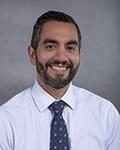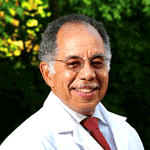February 23, 2021, 11AM-12PM EDT
This session is part of the Addressing Health Disparities to Reduce Opioid Use Harm SWEEP.
Join us on February 23 to discover ways to address how perceptions of addiction differ across racial/ethnic groups.
We’ll also cover how using a culturally competent approach to opioid use disorder treatment can increase treatment uptake and retention.
Materials
Our Speakers

Ricardo Cruz, M.D., M.P.H.
Boston University School of Medicine/Boston Medical Center
Project RECOVER
Dr. Ricardo Cruz is a primary care physician at Boston Medical Center in the Department of Medicine, Section of General Internal Medicine. He is a graduate of Boston University School of Medicine (BUSM) and the BUSM/Boston Medical Center (BMC) Internal Medicine Residency Primary Care Training Program. He is the Principal Investigator of the Department of Health and Human Services Office of Minority Health funded Project RECOVER (Referral, Engagement, Coaching, Overdose preVention Education in Recovery), a project that utilizes peer recovery coaches to assist with engagement and retention of individuals with opioid use disorder into treatment and primary care services after completion of acute treatment services (detoxification). In addition, he is a Clinician Educator and is part of the Core Faculty of the Internal Medicine Primary Care Training Program at BUSM/BMC. He is in the BUSM Academy of Medical Educators where he teaches medical students during the pre-clinical doctoring courses with a focus on development of clinical reasoning. He has been a co-investigator on NIAAA and NIDA-funded randomized clinical trials testing medications for alcohol and cocaine use disorders. His interests are in providing primary care and treatment for substance use disorders for vulnerable populations including racial and ethnic minority communities and individuals with a history of criminal justice involvement.

Edwin Chapman, Sr., M.D., DABIM, FASAM
Private Practice in Internal Medicine & Addiction Medicine
Washington, D.C.
Dr. Edwin C. Chapman has practiced in Washington, DC for 40 over years specializing in Internal Medicine and Addiction Medicine. Over the past 20 years, he has investigated the complex mix of addiction, undertreated mental illness, infectious diseases (AIDS & Hepatitis C), criminal behavior, and chronic diseases in which patients have 20-25 year shorter life expectancies. Dr. Chapman received his B.S. in 1969 and M.D. in 1973 from Howard University College of Medicine. He completed his internship and residency in internal medicine as well as a fellowship in cardiology from historic Freedmen’s and Howard University Hospitals. He is board certified by the American Board of Internal Medicine (ABIM, 1979), the American Society of Addiction Medicine (ASAM grandfathered to ABAM, 2009), a Fellow of the American Society of Addiction Medicine, and a member of Alpha Omega Alpha Honor Medical Society. He maintains active memberships in the National Medical Association (NMA) and Medico Chirurgical Society of Washington, DC (MED CHI of DC).
For more than four decades, Dr. Edwin Chapman has provided primary care services in an urban setting in Washington, DC. After 20 years of practice he served as the part-time medical director of a methadone clinic where circumstances completely changed his focus in health care realizing the preeminent role of mental health in whole person wellness. This very challenged patient population revealed drastic historical needs and missed opportunities to close glaring service gaps in care due to intergenerational “toxic stress,” often leading to a downward spiral of untreated mental health issues, physical deterioration, and personal dysfunction. Under a pilot project partnering with returning citizens from the Superior Court of the District of Columbia, he transitioned the many lessons learned from the methadone experience to his private office using office based buprenorphine “medication assisted treatment” (MAT). The inspiring results of this work resulted in an invitation to rejoin the faculty at Howard University as an adjunct assistant professor in the Department of Behavioral Health and Psychiatry. That work focused on the burgeoning need to integrate behavioral health with primary care and substance use disorder care. “That’s been the challenge, and it’s the future,” he said. With 98% of his patient population in Medicaid and/or Medicare, and many of whom are homeless or housing insecure, the current conversation around health inequities, racial disparities, and the impact of Social Determinants of Health, strikes close to home. In this session, Dr. Chapman shares his experience as a practicing internist in the Nation’s Capital, discussing the rapid advances in integrated care that he has seen – including how telemedicine has played an important part of integration – and reflects on the barriers that still exist, and ways providers and insurers can work more closely together to develop innovative payment models that address the needs of the communities, like the one he serves.